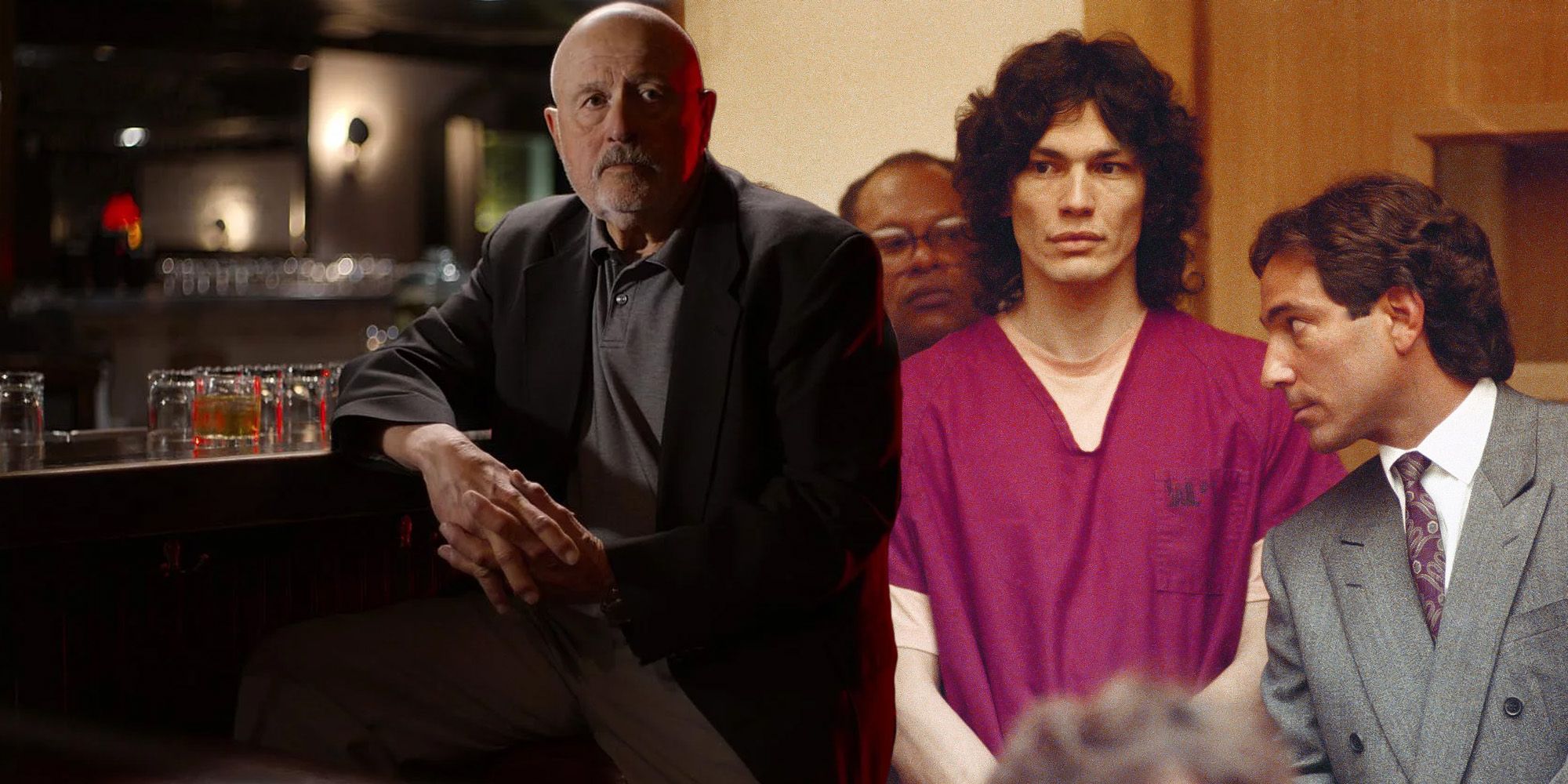Netflix's docuseries Night Stalker tries to avoid glamorizing the serial killer Richard Ramirez, but it doesn't go far enough. According to director Tiller Russell, it was important for him to prioritize the investigation and the perspectives of the lead detectives. Incidentally, the subject doesn't appear on camera, as an adult, until the fourth and final episode. But even though Russell shows narrative restraint, his approach is anything but unique, as the docuseries has a traditional procedural structure. What truly matters is how Night Stalker handles the depiction of Ramirez when he does finally appear on camera. Unfortunately, Russell's images and overall aesthetics do indeed glamorize the subject.
Night Stalker is anchored by on-camera interviews from Los Angeles detectives Gil Carrillo and Frank Salerno, with the former being more charismatic and the latter displaying a stoic demeanor. Storywise, Russell's approach makes perfect sense, as Carrillo recalls being a young detective who was thrilled when the man who caught the infamous Hillside Strangler recruited him to investigate a series of murders in 1985. Night Stalker wisely keeps the killer off-camera and focuses on the chronological timeline. In each of the four episodes, Russell appropriately acknowledges the victims, and makes sure to underline the absolute terror that many Angelenos felt during the summer of '85. Plus, by the end of episode 3, Night Stalker has documented everything that viewers need to know about the evidence, and how Carrillo and Salerno managed to identify Ramirez.
In Night Stalker, Russell unfortunately glamorizes Ramirez by showing too much. Of course, there's always a fine line to navigate in serial killer docuseries because it's important to include an appropriate amount of archival footage, which allows the audience to better understand the subject. In that sense, the Netflix show covers the essentials by having interviewees describe their perception of Ramirez, and then showing the subject acting erratically after being caught, even displaying a pentagram on his hand in court. But that's where Russell loses his way, as he chooses to amplify the Night Stalker persona during court sequences, rather than providing audiences with insight about the killer's frame of mind. Night Stalker doesn't include any expert testimonies about how childhood abuse might've transformed Ramirez into a killer, but it does feature several shots of him wearing sunglasses in court, and also a plethora of nude photos that admiring females sent to the killer. Russell doesn't necessarily go over-the-top with his filmmaking, but it's evident that he wanted to capitalize on played-out tropes about serial killers being "evil."
Russell's Night Stalker aesthetics also glamorize Ramirez. The first three episodes conclude with '80s-style synthwave music and a neon purple title card that essentially hypes up the serial killer's persona. So, by the fourth episode, Russell has set the stage for the subject's grand arrival. The Netflix docuseries spends about two minutes documenting horrifying childhood experiences that Ramirez endured, and then moves along without really making a psychological connection that could help explain the killer's motivations, which is so expertly done in the 2020 Netflix four-part docuseries The Ripper, and also more thoroughly in the 2020 HBO documentary Crazy, Not Insane.
Night Stalker incorporates evil-themed audio from Ramirez interviews, which essentially allows the killer to perpetuate a myth from the grave. In a recent interview (per Variety), Russell states that he didn't want to "fall prey" to a "dangerous myth," yet all the synth music, neon graphics, and court footage does exactly that in Night Stalker. It seems that the documentarian did actually get caught up in what he describes as "complicit fascination," and seems to have known that nostalgic themes/aesthetics would indeed be ideal for a global Netflix audience. In fact, the Night Stalker director's own words sum up his inadvertent glamorization misfire: "What is our fascination with serial killers and with Richard Ramirez? In a weird way, we are all a part of the story by giving it our attention and focus."


